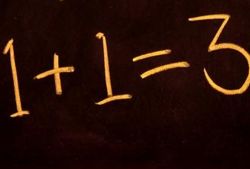Pre-K Kids Kicked Out of Schools Across the Country

Get the world’s most fascinating discoveries delivered straight to your inbox.
You are now subscribed
Your newsletter sign-up was successful
Want to add more newsletters?

Delivered Daily
Daily Newsletter
Sign up for the latest discoveries, groundbreaking research and fascinating breakthroughs that impact you and the wider world direct to your inbox.

Once a week
Life's Little Mysteries
Feed your curiosity with an exclusive mystery every week, solved with science and delivered direct to your inbox before it's seen anywhere else.

Once a week
How It Works
Sign up to our free science & technology newsletter for your weekly fix of fascinating articles, quick quizzes, amazing images, and more

Delivered daily
Space.com Newsletter
Breaking space news, the latest updates on rocket launches, skywatching events and more!

Once a month
Watch This Space
Sign up to our monthly entertainment newsletter to keep up with all our coverage of the latest sci-fi and space movies, tv shows, games and books.

Once a week
Night Sky This Week
Discover this week's must-see night sky events, moon phases, and stunning astrophotos. Sign up for our skywatching newsletter and explore the universe with us!
Join the club
Get full access to premium articles, exclusive features and a growing list of member rewards.
Johnny is causing headaches in classrooms across the country even before the spit wads of grammar school start flying.
A new study finds pre-K students are expelled three times more often than K-12 children in general.
The problem appears to have more to do with a lack of teacher resources than anything inherently bad about Johnny, however. And in a twist that might surprise some parents, the problem is less severe in public schools than in faith-based settings.
Resources needed
The survey by scientists at Yale University is based on data from all 40 states that fund pre-K programs, which serve 3- and 4-year-olds.
"No one wants to hear about three- and four-year-olds being expelled from preschool, but it happens rather frequently," said study leader Walter Gilliam of the Yale Child Study Center.
Though rates of expulsion vary by state, pre-K expulsions exceed those in K-12 classes in all but three states.
Get the world’s most fascinating discoveries delivered straight to your inbox.
The lowest expulsion rates are in public schools and Head Start programs, according to a statement released by Yale. The highest rates are in faith-affiliated centers, for-profit childcare and other community-based settings. Students were expelled twice as often in classes where teachers had no access to a psychologist or psychiatrist.
"Classroom-based behavioral consultation appears to be a promising method for reducing pre-kindergarten expulsion," Gilliam said. "When teachers reported having access to a behavioral consultant who was able to provide classroom-based strategies for dealing with challenging student behaviors, the likelihood of expulsion was nearly cut in half."
Bad boys?
Four-year-olds were expelled at a rate about 1.5 times greater than three-year-olds. Boys were kicked out more than 4.5 as often as girls.
African-Americans attending state-funded pre-K were about twice as likely to be expelled as Latino and Caucasian children, and more than five times as likely to be expelled as Asian-American children.
The study used a random sample of 4,815 classrooms, or about 12 percent of the total in state-funded pre-K programs.
Related Stories
 Live Science Plus
Live Science Plus











